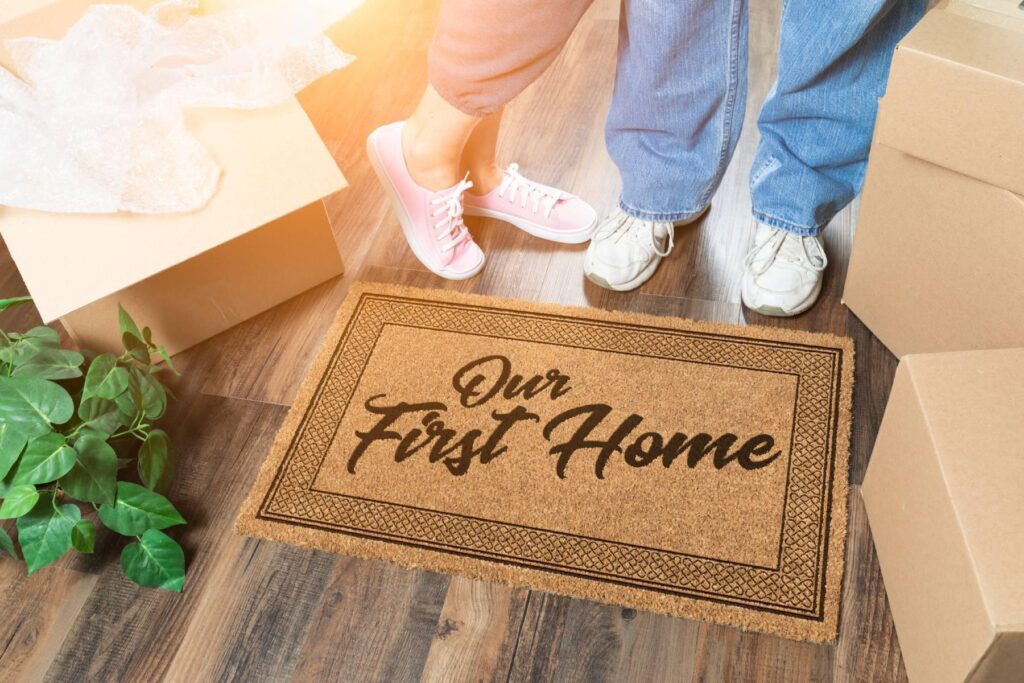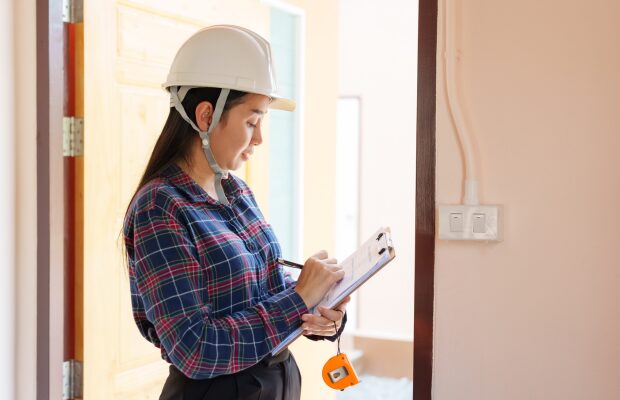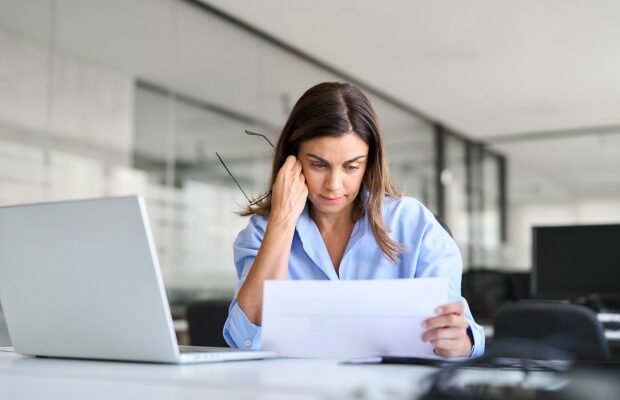Buying a home for the first time can feel like stepping into the unknown and is a huge learning experience.
Being prepared and knowing what to expect, though, can help ease through the process.
Here, we’ll answer some common questions asked by first-time buyers and run you through everything you need to consider before closing with some helpful checklists…
How do I qualify as a first-time buyer?
In order to be considered a first-time buyer by your mortgage lender, you’ll need to:
• Have never owned a property before, either in the UK or abroad
• Both have never owned a home in the UK or abroad if you’re buying with another person
• Have never inherited a property before
How much of a deposit does a first-time buyer need in the UK?
The average first-time buyer deposit in the UK is now £59,000 and £132,000 in London, according to the Halifax.
According to Rightmove’s April 2021 House Price Index, meanwhile, the average asking price for a first-time buyer property is now £203,564 outside of inner London.
That means the standard 10% deposit required by a first-time buyer would be £20,356, with a 20% deposit being £40,712.
Do first-time buyers pay stamp duty?
First-time buyer stamp duty relief was brought in during 2017.
This means any first-time buyer purchasing a property worth £500,000 or less will pay no stamp duty on the first £300,000 of their purchase price.
Under the stamp duty ‘holiday’, brought in during the summer of 2020, all buyers are exempt from stamp duty on the first £500,000 of a property’s purchase price until June 30, 2021.
From July 1, 2021, first-time buyer exemption will revert to the first £300,000 on properties costing no more than £500,000.
Help for first-time buyers
For first-time buyers, saving a large enough deposit to buy a home is often the biggest challenge.
Government help for first-time buyers, however, is available through the Help to Buy scheme and the 95% mortgage guarantee scheme.
Help to Buy equity loans covering 40% of a property’s purchase price are available to buyers in London with a 5% deposit, while the mortgage guarantee scheme was launched to encourage lenders to offer mortgages worth 95% of purchase prices – again meaning only a 5% deposit is required.
Buying a house for the first time – your ultimate checklist
Being prepared and understanding what you’ll need to do at each stage of the buying process is key as a first timer.
These handy checklists can help keep you on track…
Your first-time home buyer checklist before completion
Once you’ve had an offer accepted on your first property, it’s full steam ahead to completion and receiving the keys.
Here’s everything you’ll need to do…
Complete your mortgage application
You’ll need to send your mortgage lender the following documentation to support your application:
• Proof of identity – driving licence or passport
• Proof of address – recent utility bill
• Requested number of payslips and P60 to prove your income
• Requested number of bank statements to show incoming and outgoing cashflow
• Requested certified accounts and SA302 form if you’re self-employed or a limited company director
Appoint a solicitor or conveyancer
Your solicitor will complete the legal parts of your move, undertaking searches and checks which include:
• Local authority searches
• Title register and plan searches
• Flood risk assessment
• Water authority searches
• Chancel repair searches
• Environmental searches
Your solicitor will also liaise with your seller’s conveyancer, raising queries on key matters.
Book your survey
Buying a home is a huge financial commitment, so it’s crucial you’re happy with what you’re buying.
Book an independent survey on the property you’re buying, which will highlight any issues of concern before you exchange contracts with your seller.
Get quotes from removal companies
Removal companies can become very busy at certain times of year, so start enquiring as soon as you have your offer accepted.
What you pay will be determined by the distance you’re moving and the number of belongings you have.
Make yourself available
Your solicitor and mortgage lender will require documents or information from you at various stages between offer and exchange of contracts, so make sure you’re available and have key documents to hand.
The more proactive you are, the quicker your purchase will move forwards.
Exchange contracts and pay your deposit
Once all searches are completed and your mortgage is approved, you’ll be able to exchange contracts with your seller.
At this stage, your purchase becomes legally binding, and you’ll pay your deposit via your solicitor.
Agree your completion date
After you’ve exchanged contracts and paid your deposit, you’ll be able to agree a moving-in date.
The time between exchange and completion is usually one to two weeks but can vary.
Completion
On your completion day, your mortgage lender will release funds covering the cost of your property on top of your deposit.
Your solicitor will then transfer the funds to your seller’s solicitor and pay any stamp duty you owe.
Once all the cash transactions are completed between you and your seller, you’ll receive the keys to your new home.
Your first-time buyer costs and fees checklist
Keeping track of your costs and expenses when buying a home for the first time is hugely important.
Here are all the costs you’ll need to factor in when you’ll need to pay them…
Your deposit
Your one major upfront cost as a first-time buyer will be your deposit.
This needs to be in place when you apply for your mortgage and you’ll need at least 5% of your property’s purchase price as a deposit.
Your deposit is payable when you exchange contracts.
Stamp duty
If you’re buying a property for less than £500,000 and complete before June 30, 2021, you’ll pay no stamp duty.
From July 1, 2021, you’ll pay no stamp duty on the first £300,000 of your purchase price up to a maximum price of £500,000 if you’re a first-time buyer.
If you need to pay stamp duty, you can work out what you’ll need to pay with an online calculator.
Stamp duty is payable on completion.
Mortgage valuation fee
Your mortgage lender will undertake a valuation of your property before they agree to lend to you.
You should expect to pay between £150 and £1,500 as a fee for your lender’s valuation, depending on the size and value of the property you’re buying.
The valuation fee is usually payable right away but can sometimes be added to your mortgage – remember, though: if you add it to your mortgage, you’ll pay more interest.
Other mortgage costs
As well as your valuation fee, you may have to pay:
• A booking fee of between £100 and £250
• An arrangement fee of anything up to £2,000
Like your valuation fee, these additional costs can sometimes be added to your mortgage, but you’ll pay interest on them if you do this.
Survey fee
You should always get the property you’re buying checked out by a surveyor, who will look at its structure and assess any potential problems before you exchange contracts.
Survey fees vary depending on the size of the property and depth of survey you want – but you should expect to pay between £250 and £700 for this.
Solicitor fees
Your solicitor will carry out all the legal work on your purchase and will charge for doing so.
Some solicitors will charge for the time they spend working on your transaction, but most will set a fixed fee and charge for searches on top of that.
You should prepare to pay between £800 and £2,000 for legal fees and searches, depending on the work involved.
Removals costs
You should factor in at least £500 for removals fees, but the exact cost will depend on the distance you’re moving and the amount of things you have.
You could consider hiring a van and moving yourself if you’re looking to save money, with van hire costing £100 to £200 depending on the size of the vehicle you need.
Insurance costs
Your mortgage lender will need you to take on a buildings insurance policy to protect your new home from flooding, fire and other major damage.
You should also consider a contents insurance policy for the things you own and a life insurance policy if you’re buying a property with another person.
Insurance policy costs will vary depending on your circumstances but are payable monthly.
Council tax and running costs
Once you’ve moved into your new home, you’ll be liable for council tax and utility services.
Speak to your seller’s estate agent and find out how much you can expect to pay.
Leasehold costs
If you’re buying a leasehold property, like a flat or apartment, you may have to pay ground rent and a service fee to the freeholder for maintenance of common areas.
Find out from your seller’s estate agent early on how much these charges are.
Moving day checklist for first-time buyers
Moving day is a huge moment for you as a first-time buyer and you’ll be within touching distance of owning your own home.
Here’s everything you’ll need to do on the day itself to ensure a smooth, stress-free move…
Final checks of your existing property
If you’re moving out of a rental property, do a final sweep of it to ensure you haven’t left anything behind.
Give the property a clean
Once all your belongings are out of your rental property and packed up on a van ready to be driven to your new home, give the property a final clean up so it’s ready for inspection by your landlord.
Take meter readings
Read your gas and electricity meters and make a note of the figures so you can close down your utility accounts.
Pack a moving day ‘survival kit’
Pack a bag with essentials like:
• Drinks
• Snacks
• Cash / cards
• Phone charger
• Spare clothes
• Toothbrush and toothpaste
• Towels
• Toilet paper
Doing this will mean you don’t have to wade through mountains of boxes when you arrive at your new home.
Take meter readings at your new property
Take gas and electricity meter readings at your new home on your moving-in day and send these to your new suppliers – this will ensure you’re paying only for the gas and electric you’ve used.
Your first-time buyer furniture checklist
One of the most exciting parts of buying a home for the first time is furnishing and decorating it in the style you want.
Even if you have existing furniture, you may want to upgrade, but try not to buy too much, too soon and make sure you’re fully aware of what’s staying in the property, which might include integrated white goods like fridge freezers and dishwashers.
Here’s all the furniture you might need when moving into your new home…
Living room
• Sofa and chairs
• Coffee table
• TV and media unit
• Shelving unit
Bedrooms
• Bed
• Bedside tables
• Wardrobe
• Chest of drawers
• Shelving or additional storage
Dining room
• Dining table and chairs
• Sideboard or drinks cabinet
Bathroom
• Storage units
• Cabinet with mirror
• Shelving
Office
• Desk and chair
• Storage units
• Shelving
Further reading…
If you’re looking to get that first foot on the property ladder in London, our guide is packed full of great advice.
New-build properties are great options for first-time buyers in the capital, too – here’s everything you need to know about buying a property off-plan.








